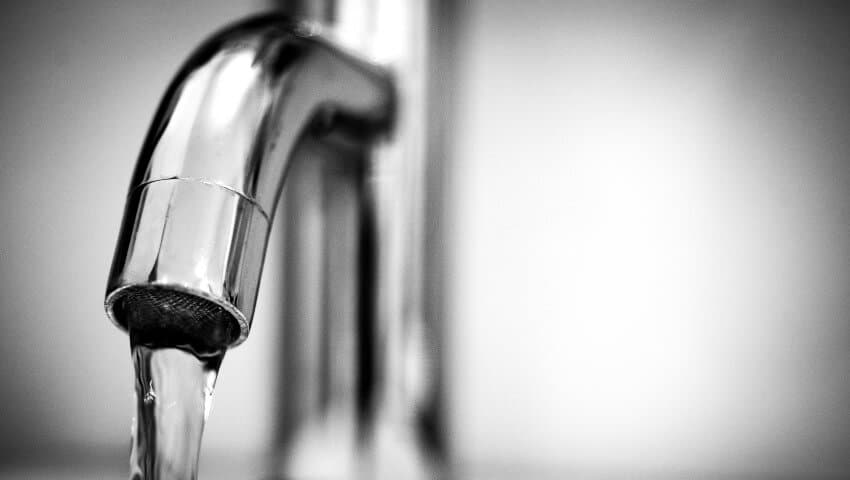Tips for Making Water Damage Claims

In this article, we’re taking a look at some steps to take if you have to make a water damage claim. Read on to find out more.
Water damage is a common problem that can occur in any home or apartment. It can be caused by various factors, such as burst pipes, leaking roofs, or natural disasters like floods and hurricanes. When water damage occurs, it can lead to significant losses, including damage to personal property and structural damage to the building. In such cases, making a water damage claim is crucial to recover the losses. In this article, we’re taking a look at some water damage insurance claim tips, particularly for tenants who have insurance.
Related Read: How Tenant Insurance Protects Against Floods, Rain, and Wind
Need Tenant Insurance?
1. Understand Your Insurance Policy
The most important of our burst pipe insurance claim tips is to understand your insurance policy. Tenants’ insurance policies typically cover water damage caused by sudden and accidental events, such as burst pipes or overflowing toilets. However, some policies may exclude certain types of water damage, such as flooding.
APOLLO offers optional enhanced water damage coverage to provide additional protection for tenants against water damage losses.
2. Document the Damage
When water damage occurs, it is vital to document the damage as soon as possible. Take photos and videos of the affected areas, including any damaged personal property. This documentation will serve as evidence for your insurance claim and help the insurance adjuster assess the damage accurately.
3. Notify Your Landlord
If you are a tenant, it is crucial to notify your landlord or property manager as soon as possible when water damage occurs. They may be responsible for repairing the damage to the building’s structure, and they may also have their insurance policy to cover the damage. Moreover, notifying your landlord promptly can prevent the damage from worsening and causing more significant losses.
Related Read: Does Tenant Insurance Cover Damage to Landlord’s Property?
Need Tenant Insurance?
4. Mitigate the Damage
When water damage occurs, it is essential to mitigate the damage as much as possible. This means taking steps to prevent the damage from getting worse. For example, if there is a leak, turn off the water supply to the affected area to prevent further flooding. If there is standing water, remove it as soon as possible to prevent mold growth. Taking these steps can help minimize the damage and prevent further losses.
5. Contact Your Insurance Company
Once you have documented the damage and mitigated the damage, it is time to contact your insurance company to make a claim. Be sure to provide the insurance company with all the necessary information, such as the date and time of the damage, the cause of the damage, and the extent of the damage. The insurance company will assign an adjuster to assess the damage and determine the amount of compensation you are entitled to.
6. Cooperate with the Insurance Adjuster
When the insurance adjuster visits your home or apartment to assess the damage, be sure to cooperate fully. Provide them with all the necessary documentation and answer their questions truthfully and accurately. The adjuster’s role is to determine the extent of the damage and the compensation you are entitled to, so it is essential to provide them with all the information they need.
Need Tenant Insurance?
7. Keep Records of Expenses
During the claims process, you may incur expenses related to the water damage, such as temporary accommodation or repair costs. It is crucial to keep records of all these expenses, including receipts and invoices. These records will help you claim compensation for the expenses and ensure that you are adequately compensated for your losses.
Related Read: The Importance of Documenting Your Belongings for Tenant Insurance Claims
8. Be Patient
Making a water damage claim can be a lengthy and complex process. It may take several weeks or even months to resolve the claim, depending on the extent of the damage and the insurance company’s policies and procedures. Therefore, it’s essential to be patient and cooperate with the insurance company throughout the process.
9. Prevent Future Water Damage
Finally, it is crucial to take steps to prevent future water damage. This includes regular maintenance of your home or apartment, such as checking for leaks and repairing them promptly. You may also consider installing water detection devices or upgrading your plumbing system to prevent future water damage.
APOLLO offers customizable tenant insurance that includes optional enhanced water coverage. Get your free quote in less than a minute and we’ll send your unique policy documents right to your inbox.
Looking to learn more about protecting your rental unit from water damage? Read our article Does Renter’s Insurance Cover Water Damage? to learn more.
APOLLO Has You Covered
Get the protection you need in minutes with custom Tenant Insurance from APOLLO.
Originally published May 23, 2023, updated August 25, 2023
Back to APOLLO MagazineTenant Insurance Starting at $13/month
The only tenant insurance provider with a Best Price Guarantee. Already have a policy or quote? We’ll beat the price. Guaranteed. Terms apply.
4.7 rating
Tenant Insurance Starting at $13/month
The only tenant insurance provider with a Best Price Guarantee. Already have a policy or quote? We’ll beat the price. Guaranteed. Terms apply.
4.7 rating
Relevant articles
Getting insured is as easy as 1 - 2 - 3

Tell us (very little) about yourself
Just tell us your address, your name, email and phone number. And that's it. We'll give you a price in less than a minute.

Pay online easily and securely
You can choose to pay monthly or save money by paying for the entire year in one easy payment.

Get your documents in your inbox - instantly
As soon as you complete your purchase, you'll find your proof of insurance and policy documents waiting for you in your inbox.
Get covered today - it couldn’t be easier
We’ve provided more than 1,000,000 quotes to Canadians just like you. Give it a try!


